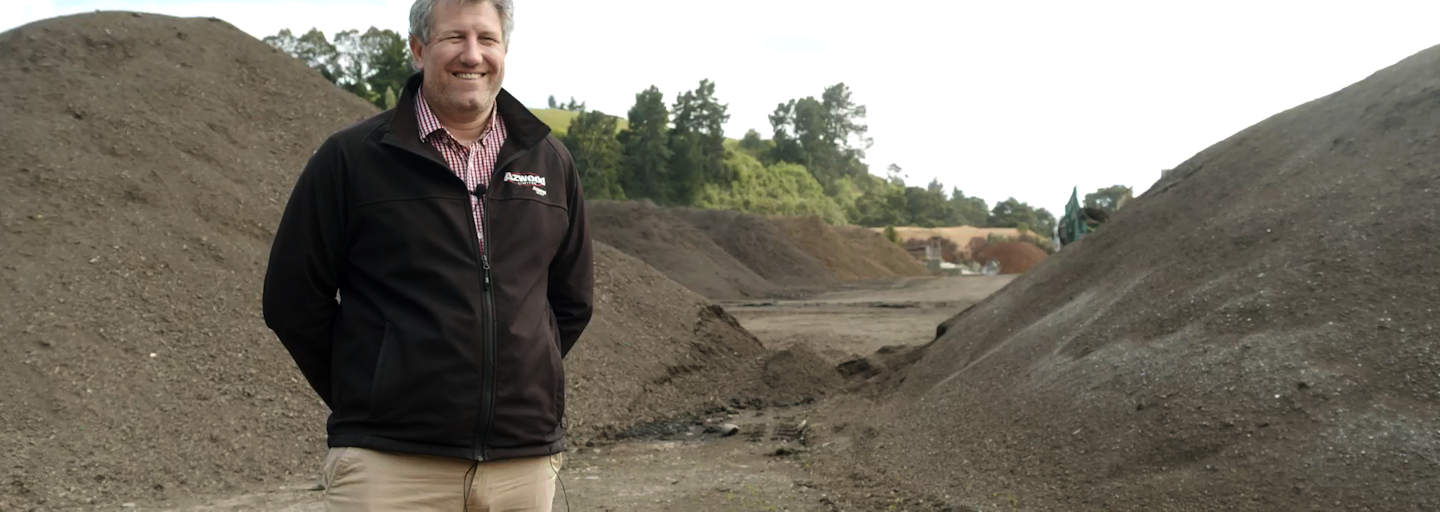Is compost included in your fertiliser budget?
We explain the benefits of compost and how it can be incorporated into your fertiliser budget for commercial growers looking to decrease their fertiliser use.
Synthetic fertilisers
Synthetic fertilisers offer several benefits, including precise control over nutrient concentrations, rapid results and customisation based on specific crop needs. However, the use of synthetic fertilisers raises environmental concerns. The production and application of these fertilisers contribute to water pollution and soil degradation.
Furthermore, over-dependence on synthetic fertilisers can lead to negative consequences. Plants may become reliant on the quick-release nutrients, diminishing their natural ability to absorb nutrients from the soil. This dependency can also result in overapplication, leading to nutrient imbalances that negatively impact plant health.
Long-term soil health is another consideration. The continuous use of synthetic fertilisers may disrupt the microbial balance in the soil, reducing its ability to retain water and nutrients. This degradation can compromise the overall soil’s health.
In response to these challenges, many horticulturists are increasingly turning to compost as a long-term solution to soil health. There are many long-term benefits to applying compost such as improving soil structure, enhancing water retention and increasing nutrient availability, which addresses some of the drawbacks associated with synthetic fertilisers. This shift towards compost aligns with the growing awareness and commitment to sustainable and environmentally friendly horticultural practices.
Organic fertiliser
While compost provides a long-term source of nutrients, the release of these nutrients is gradual and may not meet the immediate needs of plants, especially during periods of rapid growth or fruiting which is why in the past fertilisers have been a popular solution.
However, its long-term benefits far outweigh the immediate effects of fertilisers. Compost enriches the soil with organic matter, fostering a healthy microbial community and improving soil structure and water retention capabilities.
While synthetic fertilisers may offer quick fixes, they don't maintain or grow organic matter in the soil therefore it is constantly depleting it’s nutrients rather than replenishing. Compost serves as a sustainable approach to soil health management, providing a continuous supply of nutrients over time.
This sustainable approach represents a commitment to stewardship of the land. Growers are then participating in a circular economy, where resources are reused and recycled, reducing waste and minimizing environmental impact.
*Below is an example of a compost trial on the same vineyard block. The left picture is without compost and the right is with compost application.
The benefits of applying compost seen within the first year
Moisture retention
Weed suppression
Increases organic matter
Improves soil aeration
Healthier plants
The long-term benefits of applying compost
Prevents Soil Erosion
Improves soil structure
Increases root mass
Reduces the use of synthetic fertilisers
Increased yield through fruit quantity, quality and size
Return on investment
Sustainable growing
What if I use neither?
The absence of fertilisers or compost results in nutrient deficiencies within the soil, hindering optimal plant growth and development. Fruit-bearing plants, with their high nutrient demands, may produce smaller, lower-quality fruits, ultimately diminishing overall yields.
Think about a native forest. We don’t fertilise that at all do we? But the plants in that forest don’t struggle at all for nutrients because there is a constant recycling of natural litter that falls from the trees and is re-incorporated through a natural composting process on the forest floor.
The difference with a commercial orchard is that not only are we trying to increase the plants performance and production, we also take the fruit from the trees and export them off the property leaving no organic matter behind. So we need to have a replacement to put back into our soils, which is where compost comes in.
The economic consequences can be significant, as reduced yields and fruit quality translate into financial loss. So what you may save in a fertiliser or compost budget, you will lose in reduced yields.
Including compost into your fertiliser budget
Compost reduces the need for additional fertiliser applications by supplying plants with essential nutrients over time as it decomposes, improving soil health and nutrient availability. Additionally, compost enhances soil health, microbial activity, and nutrient retention, leading to more efficient nutrient uptake by plants and decreasing reliance on synthetic fertilisers.
Integrating compost into the fertiliser budget acknowledges its role as a valuable investment in soil health management, resulting in reduced overall fertiliser costs and improved long-term productivity.
By slowly allocating funds to the purchase of compost you can gradually decrease the expenditure on synthetic fertilisers as soil health improves and nutrient availability increases.
Overall, incorporating compost into commercial horticultural operations can yield significant financial benefits by reducing fertiliser expenses, increasing crop yields, lowering waste management costs, and mitigating risks associated with soil degradation and nutrient deficiencies.
These financial advantages, coupled with the environmental benefits, make compost a valuable investment for commercial growers seeking sustainable and cost-effective soil health management solutions.
Interested in encorporating compost into your fertiliser budget?
Get in touchRelated articles


